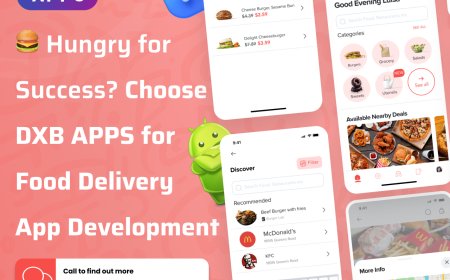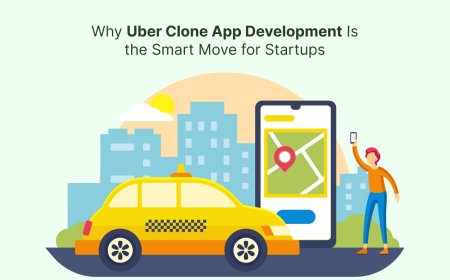Voice AI for Patient Appointment Scheduling: Streamlining Healthcare Access

The healthcare industry, at its core, is dedicated to providing care and improving lives. Yet, the very first step in accessing this carescheduling an appointmentcan often be fraught with friction. Patients frequently face long hold times, limited availability, and the frustration of navigating complex phone trees or clunky online portals. Simultaneously, healthcare providers grapple with overwhelmed administrative staff, high call volumes, and the inefficient allocation of valuable human resources. This critical bottleneck not only diminishes the patient experience but also contributes to staff burnout and operational inefficiencies.
However, a revolutionary technological advancement is rapidly emerging to address these challenges head-on: Voice AI. Specifically, Voice AI for Patient Appointment Scheduling is transforming how patients connect with healthcare providers, promising a future where accessing medical care is as simple and intuitive as a natural conversation. This article delves into how Voice AI for business is being leveraged within healthcare to streamline operations, enhance patient satisfaction, and free up human staff for more complex, empathetic interactions.
The Current Landscape of Patient Appointment Scheduling: A Bottleneck for Care
Before exploring the transformative power of Voice AI, its essential to understand the existing pain points. Traditional appointment scheduling methods are often riddled with inefficiencies:
-
Long Hold Times: Patients typically spend significant time on the phone, waiting to speak with a receptionist, leading to frustration and potential abandonment of calls.
-
Limited Operating Hours: Most administrative staff operate within standard business hours, meaning patients cannot schedule appointments outside these times, which is inconvenient for those with demanding schedules or urgent needs.
-
Manual Errors: Human error in manual scheduling can lead to double bookings, incorrect appointment times, or missing patient information.
-
Staff Overload: Administrative teams are often stretched thin, managing incessant phone calls, patient queries, and other crucial tasks, contributing to high stress levels and burnout.
-
Inconsistent Information: Without a standardized system, patients might receive varying information depending on who they speak with, leading to confusion.
-
Suboptimal Slot Utilization: Manual systems can struggle to efficiently fill cancellation slots or identify optimal appointment times, leading to wasted provider capacity.
These factors collectively create a significant barrier to accessing care, impacting patient satisfaction and operational efficiency within healthcare facilities.
Introducing Voice AI in Healthcare: A New Era of Accessibility
Voice AI leverages advanced natural language processing (NLP), speech recognition, and machine learning to understand and respond to human speech. In the context of healthcare, a voicebot for appointment booking acts as an intelligent virtual assistant, capable of handling a significant portion of patient scheduling inquiries autonomously.
When a patient calls or interacts with a healthcare system equipped with Voice AI, the process is remarkably intuitive:
-
The Voice AI system converts the patients spoken words into text.
-
NLP algorithms then analyze the text to understand the patients intent (e.g., "I need to book an appointment," "I want to reschedule," "What are your hours?").
-
Based on the understood intent, the AI accesses relevant information from integrated systems, such as the clinics Electronic Health Record (EHR) or Practice Management System (PMS), to check doctor availability, patient history, or specific service offerings.
-
The Voice AI generates a natural, human-like spoken response, guiding the patient through the booking process, confirming details, or providing requested information.
This seamless interaction, powered by sophisticated algorithms, mimics a human conversation, making the experience user-friendly and highly efficient.
Benefits of Voice AI for Patient Appointment Scheduling
The integration of Voice AI for Patient Appointment Scheduling offers a multitude of benefits for both patients and healthcare providers, fundamentally transforming the initial patient journey.
For Patients: Enhanced Experience and Access
-
24/7 Accessibility: Patients can book, change, or cancel appointments at any time, day or night, fitting seamlessly into their busy lives. This eliminates the frustration of waiting for business hours to connect with a clinic.
-
Reduced Wait Times: Voice AI can handle multiple inquiries simultaneously, eliminating phone queues and hold times. Patients get immediate assistance, significantly improving their initial interaction with the healthcare provider.
-
Ease of Use: The natural conversational interface requires no technical expertise. Patients simply speak as they would to a human, making it accessible for all demographics, including the elderly or those less comfortable with online portals.
-
Improved Patient Satisfaction: A quick, efficient, and frustration-free scheduling experience sets a positive tone for the entire patient journey, fostering trust and loyalty.
-
Reminders and Follow-ups: Voice AI can send automated, personalized appointment reminders via call or text, significantly reducing no-show rates and ensuring patients arrive prepared.
For Healthcare Providers: Operational Efficiency and Cost Savings
-
Reduced Administrative Burden: Voice AI automates routine scheduling tasks, freeing up valuable administrative staff to focus on more complex patient queries, empathetic interactions, or critical in-person support. This directly combats staff burnout.
-
Increased Staff Efficiency: By offloading repetitive tasks, human staff can be better utilized, leading to higher productivity and job satisfaction.
-
Optimized Resource Allocation: Voice AI can precisely manage appointment slots, ensuring optimal utilization of doctor availability, examination rooms, and other resources. It can also quickly fill last-minute cancellations.
-
Decreased Call Volume: A significant portion of incoming calls related to scheduling, rescheduling, or basic information can be handled by the AI, drastically reducing the load on call centers and front desk staff.
-
Cost Savings: Lower staffing needs for administrative tasks, reduced missed appointments, and improved operational efficiency translate into significant cost savings for healthcare organizations.
-
Data-Driven Insights: Voice AI systems can collect valuable data on common patient queries, peak call times, and appointment trends, providing insights that can inform staffing decisions and operational improvements.
How Voice AI Streamlines the Appointment Booking Process
The process enabled by a voicebot for appointment booking is designed for maximum efficiency and user-friendliness:
-
Initial Interaction: A patient initiates contact, either by calling a dedicated line where Voice AI is integrated or via a prompt on a website/app. The AI greets the patient naturally.
-
Intent Recognition & Information Gathering: The Voice AI prompts the patient for their needs (e.g., "What can I help you with today?"). If the intent is to book an appointment, the AI asks relevant questions like: "What type of appointment do you need?", "Are you a new or existing patient?", "Who would you like to see?", and "What dates or times work best for you?"
-
Real-time Availability Check: Leveraging seamless integration with the clinics EHR or PMS, the Voice AI instantly checks the real-time availability of doctors, specialists, and resources based on the patients preferences.
-
Slot Recommendation & Confirmation: The AI proposes suitable appointment slots. The patient can then select their preferred time. Once chosen, the AI confirms the appointment details, often repeating the date, time, and location to ensure accuracy.
-
Patient Information Capture: For new patients, the Voice AI can guide them through providing essential demographic information. For existing patients, it can quickly verify details.
-
Automated Reminders: Post-booking, the Voice AI system can be configured to send automated reminders via voice call, SMS, or email leading up to the appointment, reducing no-shows.
-
Rescheduling/Cancellation: The same intuitive process applies if a patient needs to reschedule or cancel, making it easy and encouraging them to do so rather than simply missing an appointment.
This entire process is designed to be conversational and efficient, completing in minutes what might otherwise take a human agent much longer, especially during peak hours.
Key Features of an Effective Voice AI Solution for Healthcare
For a Voice AI solution to be truly effective in healthcare, it must possess several critical features:
-
Natural Language Understanding (NLU): The ability to comprehend complex, natural human speech, including accents, colloquialisms, and medical terminology, is paramount.
-
Integration Capabilities: Seamless integration with existing EHR, PMS, and CRM systems is essential to access real-time schedules, patient records, and other critical data.
-
Scalability: The solution must be able to handle fluctuating call volumes, from routine inquiries to surges during flu season or public health events.
-
Security and HIPAA Compliance: Protecting patient data (PHI) is non-negotiable. The Voice AI system must adhere strictly to HIPAA regulations and other data privacy laws.
-
Multi-language Support: In diverse communities, the ability to communicate in multiple languages significantly enhances accessibility.
-
Customization and Learning: The AI should be customizable to specific clinic protocols, provider preferences, and able to learn from interactions to continuously improve its accuracy and performance.
-
Human Handoff: For complex or sensitive queries that the AI cannot handle, a smooth escalation path to a human agent is vital to ensure no patient is left without assistance.
Addressing Concerns and the Future Outlook
While the benefits are clear, adopting Voice AI in healthcare also brings legitimate concerns, primarily around data privacy, patient acceptance, and the potential loss of the "human touch." Robust security protocols and HIPAA compliance are non-negotiable and must be built into the core of any Voice AI solution. Patient acceptance can be fostered through clear communication about the AI's role and benefits, often finding that the convenience outweighs the perceived lack of human interaction for routine tasks. The goal is not to replace humans entirely but to augment their capabilities, freeing them for higher-value, empathetic interactions where the human touch is truly irreplaceable.
Looking ahead, the role of Voice AI in healthcare is poised to expand far beyond just appointment scheduling. We can anticipate Voice AI for business applications extending to:
-
Pre-visit Instructions: Providing automated, personalized instructions before an appointment.
-
Prescription Refills: Handling routine refill requests securely and efficiently.
-
Basic Medical FAQs: Answering common questions about symptoms, conditions, or clinic services.
-
Post-visit Follow-ups: Checking in on patients after appointments or procedures.
-
Patient Triage: Guiding patients to appropriate care levels for non-emergency situations.
-
Personalized Health Information: Offering tailored health advice based on patient profiles (with physician oversight).
Conclusion
The evolution of Voice AI for Patient Appointment Scheduling represents a pivotal moment in healthcares digital transformation journey. By automating the often-cumbersome process of booking appointments, it not only liberates administrative staff from repetitive tasks but also empowers patients with unprecedented 24/7 access to care. This technology is more than just an efficiency tool; its a strategic asset that enhances the patient experience, optimizes resource utilization, and fundamentally streamlines healthcare access. As healthcare systems continue to embrace innovation, Voice AI will undoubtedly play an increasingly central role in creating a more responsive, efficient, and patient-centric future, ensuring that the critical first step to health scheduling an appointment is no longer a barrier, but a bridge.





































